МИНИСТЕРСТВО ЛЕСНОГО ХОЗЯЙСТВА
И ОХРАНЫ ОБЪЕКТОВ ЖИВОТНОГО МИРА НИЖЕГОРОДСКОЙ ОБЛАСТИ
Государственное бюджетное профессиональное
образовательное учреждение Нижегородской области
«КРАСНОБАКОВСКИЙ ЛЕСНОЙ КОЛЛЕДЖ»
(ГБПОУ НО «КБЛК»)
МЕТОДИЧЕСКИЕ УКАЗАНИЯ
по дисциплине «Иностранный язык (Английский язык)»
для студентов I курса 8 часть
Тема 2.1 Современный мир профессий. Проблема выбора профессии. Альтернативы в продолжении образования. Подготовка к выпускным экзаменам. Роль иностранного языка в планах на будущее. Место иностранного языка в повседневной жизни и профессиональной деятельности в современном мире.
Тема 2.2 Проблемы современной цивилизации
Специальность: 35.02.01 Лесное и лесопарковое хозяйство
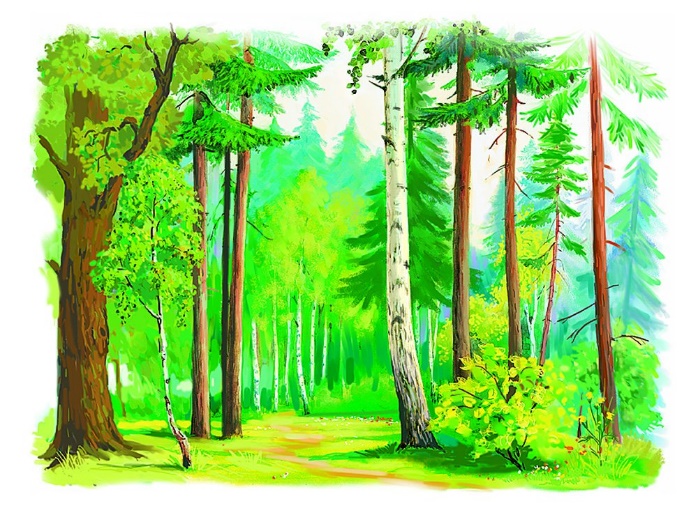
Составили:
преподаватели
иностранного языка
Воронина М.В.,
Булкина Т.А.
Красные Баки
2024 год
Lesson 1
Features of training by profession or specialty
№1. Read and translate the text:
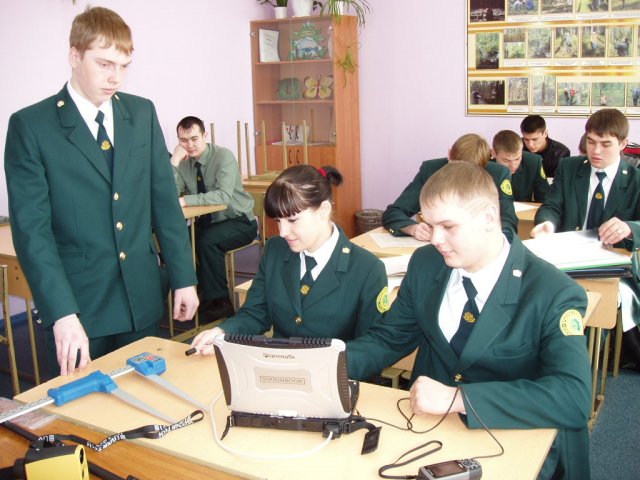 Our country has some of the largest forest territories in the world. In addition to wild forests and natural ecosystems, urban green zones, forest park zones, and protected natural areas are of great importance. To organize the correct and effective use of forest funds, a sufficiently large number of specialists is needed. The demand for the profession of a specialist in forestry and forestry is high. Such employees are needed in state and municipal services, in the labor collectives of nature reserves and nature reserves. In addition, specialists are also in demand in commercial structures that organize the protection and use of forest funds under an agreement with state environmental structures.
Our country has some of the largest forest territories in the world. In addition to wild forests and natural ecosystems, urban green zones, forest park zones, and protected natural areas are of great importance. To organize the correct and effective use of forest funds, a sufficiently large number of specialists is needed. The demand for the profession of a specialist in forestry and forestry is high. Such employees are needed in state and municipal services, in the labor collectives of nature reserves and nature reserves. In addition, specialists are also in demand in commercial structures that organize the protection and use of forest funds under an agreement with state environmental structures.
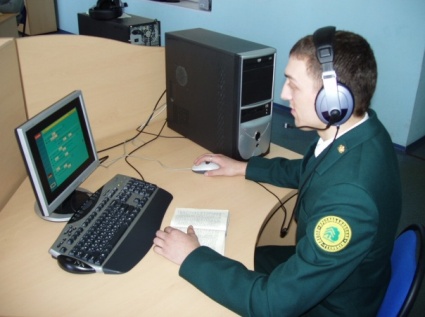 Krasnobakovskiy Forest College trains specialists of forestry and forest park management of our country. These specialists are employees of the organization responsible for the development and maintenance of forests of the state and public fund, forest park and nature protection zones in cities and protected areas. Its task is to organize activities aimed at preserving the forest fund, its rational use, development and protection. Forestry can be managed and managed by state and commercial organizations. The rules of forest use and arrangement of forest park zones are regulated by state laws, norms and standards. The specialist of forestry and forest park management ensures compliance with the norms, organizes and implements practical work on the conservation of forests and parks.
Krasnobakovskiy Forest College trains specialists of forestry and forest park management of our country. These specialists are employees of the organization responsible for the development and maintenance of forests of the state and public fund, forest park and nature protection zones in cities and protected areas. Its task is to organize activities aimed at preserving the forest fund, its rational use, development and protection. Forestry can be managed and managed by state and commercial organizations. The rules of forest use and arrangement of forest park zones are regulated by state laws, norms and standards. The specialist of forestry and forest park management ensures compliance with the norms, organizes and implements practical work on the conservation of forests and parks.
№2. Are these statements true or false? Correct the false once:
1. Specialists’ task is to organize activities aimed at destroying the forest fund
2. The rules of forest use are regulated by state laws.
3. The demand for the profession of a specialist in forestry and forestry is low.
4. Forest park zones and protected natural areas are of great importance.
5. Our country has some of the smallest forest territories in the world.
№3. Translate the rules in the forest, write out all verbs and write them in 3 forms with translation:
It is necessary to remember how to behave in a forest:
• Take you phone with you, in order to contact your relatives;
• Come back from the forest before it gets dark;
• Don’t burn dry grass and leaves;
• Don’t throw rubbish. We shouldn’t pollute nature. It is home for animals and birds;
• Don’t make loud noises in the forest: don’t scream or listen to loud music. Such loud behavior makes forest animals anxious;
• Don’t hurt wild animals. They can be dangerous when furious. If there is danger of attack don’t show your fear and don’t stand with your back to an animal. It is better to stand still for a while and wait till the animal leaves;
• Don’t take away babies of animals. They could convey very dangerous diseases;
• Don’t ruin anthills. Ants are very useful and make forests healthy;
• Don’t catch bumble-bees, butterflies, dragonflies, ladybugs. They pollinate plants, kill pests. When you kill them, you put nature in danger;
• Walk only along forest trails. Don’t trample vegetation and soil because that can affect grasses and a lot of insects;
• Don’t break branches of bushes and trees. Don’t leave any messages on them. Protect them and don’t do harm;
• Don’t gather flowers, especially with roots, because they won’t grow again. Forest flowers should please you with their beauty instead of fading in bouquets;
• Never taste unknown berries, plants and mushrooms. There is a high probability that they could be poisonous;
• Don’t step on inedible mushrooms, because they are food for animals. Remember that proper behavior is a key to your safety.
№4. Study the material “Gerund”
Герундий — это неличная форма глагола, обладающая признаками как глагола, так и существительного. Подобной формы в русском языке нет.
Как и глагол, герундий имеет формы времени и залога, может определяться наречием.
| Форма | Действительный залог | Страдательный залог |
| Indefinite | reading | being read |
| Perfect | having read | having been read |
На русский язык герундий переводится существительным, неопределенной формой глагола, деепричастием, глаголом в личной форме или придаточным предложением.
В предложении герундий может употребляться в следующих функциях:
1. Подлежащего: Your coming now and saying "I'm her father" doesn't change my feellings. - To, что вы пришли сейчас и говорите: «Я - ее отец»,- не меняет моих чувств.
2. Именной части сказуемого: Seeing is believing. - Увидеть - значит поверить.
3. Дополнения (прямого, предложного): The teacher has aimed at teaching students to speak in correct English. - Учитель поставил цель научить учащихся правильно говорить на английском языке.
4. Определения: The difficulties of rebuilding the plant were successfully overcome. - Трудности, связанные с перестройкой завода, были успешно преодолены.
5. Обстоятельств: You can help him by supporting him. - Вы можете помочь ему тем, что поддержите его.
Глаголы с предлогами, после которых употребляется только герундий:
aim at, accuse of, apologize to smb for smth, (dis)approve of, be afraid of, be angry for, be aware of, be bored with, be busy, be capable of, be clever at, be disappointed at, be engaged in, be famous for, be fond of, be good/clever at, be grateful for, be guilty of, be interested in, be keen on, be pleased at, be proud of, be responsible for, be slow at, be sorry for, be sure of, be surprised at, be worried about, be worth of, blame for, complain about, congratulate smb on, depend on, discourage smb from, excuse for smth, feel like, forget about, forgive smb for, get/be used to, insist on, look forward to, object to, persist in, praise for, prevent from smth, succeed in, suspect of, thank for, think of/about, worry about.
№5. Translate into Russian
He always suggested staying here.
I proposed having party at the beach.
I promised to care for the cat but I’m not much good at babysitting.
He is capable of standing on his head and playing the saxophone.
You’d better start digging the garden.
Writing letters is more boring than phoning.
It is not worth helping him do this job.
I’m very excited about attending tomorrow’s game.
№6. Translate into English
Мой дядя бросил курить и сейчас предпочитает есть.
Пожалуйста, прекратите шептаться.
Мне нравится быть одному. Я никогда не чувствую себя одиноко.
Я перешел дорогу, не посмотрев.
Подумай хорошо, прежде чем принять решение.
№7. Use appropriate prepositions: Example: I’m looking forward …. (see) you tonight. - I am looking forward to seeing you tonight.
His teacher insisted … (speak) to his parents.
Are you accusing me … (steal) your money?
You’d better apologize … (be) rude yesterday!
I disapprove … (smoke) in public places.
She never forgave him … (betray) their marriage.
Susan succeeded … (pass) her CAE.
He objects … (copy) from other students at the exam.
His poor health prevented him … (serve) in the army.
№8. Complete the sentences using the prompts in brackets.
Model: (help) I thanked my friend… - I thanked my friend for helping me the homework.
(watch) The examinees complained…
(graduate) I congratulated her …
(receive) I look forward…
(lie) I can’t approve…
(trust) I can’t blame you …
(disturb) Most people object …
Lesson 2
English language in the world
№1. Read and translate the text:
At the present time foreign languages are socially demanded. Foreign languages are needed as the main and the most efficient means of information exchange of the people of our planet. The question of learning foreign languages is very important today. English is just one of 6,000 languages in the world. One billion people speak English. That’s 20 per cent of the world population. It is also one of the leading languages in the world. About 350 million people speak English as their first language. About the same number use it as a second language. It is the language of aviation, international sport and pop music.
English is the official language in 44 countries, where it is used in education and administration. They are Great Britain, Canada, the United States of America, Australia, New Zealand and some other countries. In many countries it is the language of business, commerce and technology. English is the language of modern computing. Nearly 50 per cent of all the companies in Europe communicate with each other in English. 75 per cent of the world's mail is in English, too. Standard English is not completely uniform. There are differences between the national standards in Britain, America and Australia.
Russia is integrating into the world community and the problem of learning English for the purpose of communication is especially urgent today. English is very popular in international business of Russia. It is studied at schools, colleges and universities.
№2. Answer the questions:
What is the role of English among other foreign languages?
How many people speak English?
Why has English become a world language?
Where is English an official language?
Why are millions of people learning English today?
Why do young people want to learn English?
Why do you learn English?
What is necessity of learning English for a specialist?
In what careers (jobs) can languages be a tremendous advantage?
What is the best way to learn a language?
What is the most important thing for you in learning a foreign language?
What is your mother tongue?
№3. Write sentences.
Example: Ann is from Spain. Her nationality is Spanish. Her mother tongue is Spanish.

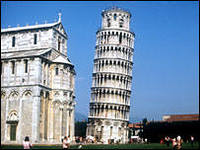
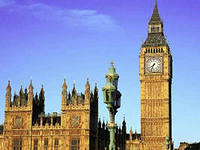
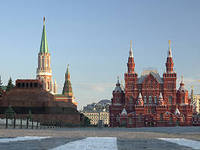
Theo Franchesco Jane Ivan
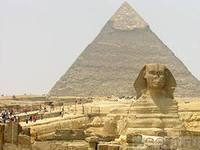
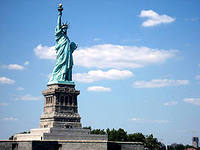
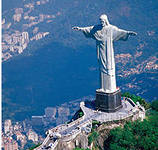
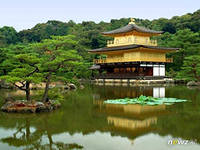
Laila Barbara Paula Takashi
№4. Use the dictionary and write the nationalities:
Russia, Australia, Canada, the USA, England, Scotland, Wales, Ireland, Germany, Switzerland, China, Mexico, Sweden, Poland, Italy, Japan, Brazil, Spain, France, Turkey.
№5. Make sentences according to the model:
Tokyo is the capital of Japan.
Minsk, Riga, Paris, Vilnius, Rome, Dublin, Jerusalem, Madrid, Sofia, Warsaw, Budapest, Athens, Washington, Havana, Teheran, Baghdad, Helsinki, Oslo, Stockholm.
№6. Study the material:
Gerunds and Infinitives act like verbs. They can follow adjectives and other verbs.
| Verbs which are usually followed by a Gerund: acknowledge, admit, adore, anticipate, appreciate, avoid, celebrate, confess, contemplate, delay, deny, describe, detest, discuss, dislike, dread, endure, enjoy, fancy, finish, imagine, involve, keep, justify, mention, mind, miss, omit, postpone, practise, quit, recall, recommend, regret, report, resume, risk, suggest, tolerate, understand. | Verbs which are usually followed by an infinitive: afford, agree, appear, arrange, ask, attempt, care, choose, claim, come, consent, dare, decide, demand, deserve, determine, elect, expect, fail, get, hate, help, hesitate, hope, hurry, intend, learn, manage, mean, need, offer, plan, prepare, pretend, promise, refuse, resolve, say, seem, tend, threaten, want, wish.
|
| Complex Object |
| 1st
| want, wish, would like, like, hate, desire, expect, know, believe, consider, get, cause | somebody | to+V |
| 2nd
| let, make | somebody | V |
| 3rd
| see, hear, feel, notice, watch | somebody | V (completed action) |
| V-ing (action in progress) |
№7. Complete with a gerund or an infinitive
1. She agreed … (pay) the electricity bill the following week.
2. Hector dislikes … (go) to the opera.
3. Martin admitted … (steal) the money from the safe.
4. Elizabeth didn’t need … (do) the final exams.
5. I regretted … (forget) to call my grandfather for his birthday.
6. Your aunt wished … (visit) Australia in Summer.
7. Please, avoid … (touch) the wires with wet hands.
8. Your friend seems … (be) very busy today.
9. We suggested … (sell) our apartment at the seaside.
10. She postponed … (make) a decision for the new shop.
№8. Open the brackets using verbs with to or without
1. I can’t afford … (stay) at such an expensive hotel.
2. I think I’ll manage … (do) the work tomorrow.
3. You’d better … (spend) the evening at home.
4. Who taught you … (skate)?
5. I can’t make the child … (go) to bed.
6. They agreed … (help) us.
7. I’d rather … (go) to the cinema.
8. I was let … (visit) the sick man.
9. Tell him … (come) at once.
10. Let him … (have a look) at the photo.
№9. Complete the sentences using +ing, infinitive or base form. Translate them:
I have to … now. Sorry. (to go)
I would like … in a hot air balloon on day. (to fly)
When I was younger my parents made me … to church. (to go)
He asked … me. I said yes. (to marry)
I'm cold. I want … home. (to go)
I need … a new computer. This one is so slow. (to get)
I enjoy … parties. (to organise)
Her parents didn't let her … a big party at home. (to have)
I learned … planes when I was in the army. (to fly)
You shouldn't … outside without a hat in winter. (to go)
I used to … a car, but I sold it. (to have)
We are gonna … the flat tomorrow. (to clean)
I don't expect it … tomorrow. (to rain)
I don’t mind … . It’s alright. (to clean)
I started … sick yesterday morning. (to feel)
Lesson 3
Natural phenomena
№1. Translate into Russian:
hurricane, earthquake, tsunami, storm, avalanche, fog, flood, wildfire, rainbow, drought, tornado, landslide, volcano, thunder, lightning, typhoon, hailstones
№2. Choose the right definition and write the sentences:
1. hurricane
(A) a storm over high mountains, usually accompanied by snow.
(B) a tropical storm with strong winds and rain.
(C) a very quick, but very heavy, rain shower.
2. tornado
(A) a long, heavy snow shower, accompanied by strong winds.
(B) a long period when there is no rain and when the land is dry.
(C) a violent storm with a whirlwind.
3. volcano
(A) a violent shaking of the earth's surface.
(B) a strong wind caused by a drop in air pressure.
(C) a mountain with a hole in the top through which lava, ash and gas can come out.
4. drought
(A) a storm, usually without rain, which happens in hot countries.
(B) a very long period of rain.
(C) a long period when there is no rain and when the land is dry.
5. flood
(A) a large amount of water over land which is usually dry.
(B) a large area of dry land which should usually be wet (e.g., a dry lake).
(C) a lake or river which has been poisoned by pollution.
6. earthquake
(A) a long, heavy snow shower, accompanied by strong winds.
(B) a shaking of the earth caused by, for example, volcanic activity.
(C) a large area of dry land which should usually be wet.
7. tsunami
(A) a tropical storm with strong winds and rain.
(B) a huge wave in the sea, caused by an underwater earthquake.
(C) a long period when there is no rain and when the land is dry
№3. Read and translate the text. Choose best title for the text from your point of view: Volcanoes / What happened to Pompeii / Digging up the past / Mount Vesuvius
North of Pompeii there is a mountain called Mount Vesuvius. It is a volcano. The people who lived in Pompeii two thousand years ago were not afraid of the volcano. It had been quiet for eight hundred years.
Then in August one year strange things started to happen. People heard noises under the ground. The water in their wells disappeared. Birds flew away from the town. Animals were frightened. On August 24th Mount Vesuvius erupted. There was a loud explosion. Hot dust and rock were thrown 20 kilometres into the air. Red-hot lava and rock poured down the sides of the mountain. The wind was blowing towards Pompeii and the hot dust fell on the town. It made breathing difficult for people. Many people ran away but many people stayed there. They did not know that a wall of lava was coming towards the town at more than 1000 kilometres an hour. The next day the town of Pompeii was buried under four metres of lava. Everyone who had stayed in the town died. The town stayed buried until 1860 in that year archaeologists started to move the rock which covered the town. They found temples, theatres, shops and houses, paintings, jewelry and coins. They found the town just as it was nearly two thousand years ago when it disappeared under the lava from Mount Vesuvius.
Vesuvius has erupted many times. The last big eruption was in 1944. Will Vesuvius erupt again? Nobody knows. If it does, it might be a small eruption or a big one. Some people live close to Vesuvius because the soil around it is good for growing crops. But it is also very dangerous.
№4. Read these sentences and say whether they are true or false:
The people of Pompeii were frightened of Mount Vesuvius.
Nothing unusual happened before the volcano erupted.
It was a very big eruption.
The lava moved slowly.
When the volcano erupted, everybody left the town.
The town was buried for nearly 2,000 years.
№5. Answer the questions:
What is Vesuvius?
Where is Vesuvius?
When did Vesuvius erupt?
What was there after eruption?
When was the last big eruption of Vesuvius?
Why do some people live close to Vesuvius? Is it dangerous?
№6. Read the text, write out from the text compound nouns (5), words with suffixes (10) and translate the words:
Forest fires raging out of control, wildfires, are an awesome and terrifying sight. They have aroused fear from earliest times. The damage they do is appalling. Forest wildfires spoil natural beauty and lower the quality of our environment by destroying countless graceful trees, spoiling lovely scenic vistas, and adding to pollution of the countryside. They make forest recreation areas, roads, trails, and streams less attractive to campers and picnickers and to boating, swimming, hiking, and skiing enthusiasts. They contribute to serious erosion and floods, which waste the richness of the earth.
When rains are heavy in burned-over areas, rivers fill quickly and their banks overflow. Damage to communities and farmlands downstream is often severe, and many times the whole nation shares in the cost of rehabilitation. Raging fires can be very damaging to wild animals and birds.
Forest wildfires destroy vast amounts of valuable timber. This timber is needed to build our homes and our furniture, to supply us with paper of all kinds (from grocery bags to newspapers to stationery to facial tissues) and for many other products for home and industry. Wildfires also kill the young trees, the timber for tomorrow. Repeated fires often prevent a new forest from starting, leaving large scarred, barren areas, which must be replanted at great cost. The best way to keep forest fire damage low is to keep fires from getting started.
№7. Choose the right variant of the verb “be”:
1) I … a student of Forest college.
a) am b) is c) are d) were
2) There … some English books on the table.
a) is b) will be c) were d) are
3) There … very many mistakes in your last dictation.
a) are b) will be c) were d) is
4) Where … your car?
a) am b) is c) are d) were
5) Her favourite seasons … spring and summer.
a) am b) is c) are d) was
6) There … a conference next week.
a) is b) was c) will be d) were
7) … there a cupboard in the bedroom?
a) Are b) Will be c) Is d) Was
8) His hair and ears … dark.
a) am b) is c) was d) are
№8. Choose the right variant of plural noun:
1) His both sons were … .
a) fisherman b) fishermans c) fishermen d) fishermens
2) I want to see … in the zoo.
a) deer b) deers c) deeres d) deeries
3) She injured her both … last week.
a) foot b) foots c) feet d) feets
4) The store was overrun with rats and … .
a) mouse b) mouses c) mice d) mices
№9. Choose the right variant:
1) I have … information about this person.
a) many b) was c) were d) much
2) Olga likes to put … sugar in the coffee.
a) few b) little c) small d) big
3) How … people are there in the food store?
a) many b) much c) any d) some
4) I haven’t got … money in the purse.
a) some b) any c) was d) were
Lesson 4
Physical phenomena
№1. Translate the words
| force – power – strength – speed – size – length – color – shape – temperature – | capacity – volume – mass – weight – smell – pace – contrast – absence – presence – | state – noise – resistance – tension – kilogram – meter – inch – mile – pound – |
№2. Read and translate the text «Physical Laws»:
A physical law or scientific law "is a theoretical statement inferred from particular facts, applicable to a defined group or class of phenomena, and expressible by the statement that a particular phenomenon always occurs if certain conditions be present." Physical laws are typically conclusions based on repeated scientific experiments and observations over many years and which have become accepted universally within the scientific community. The production of a summary description of our environment in the form of such laws is a fundamental aim of science.
The main characteristics of physical laws. They are:
True, at least within their regime of validity. By definition, there have never been repeatable contradicting observations.
Universal. They appear to apply everywhere in the universe.
Simple. They are typically expressed in terms of a single mathematical equation.
Absolute. Nothing in the universe appears to affect them.
Stable. Unchanged since first discovered (although they may have been shown to be approximations of more accurate laws).
Omnipotent. Everything in the universe apparently must comply with them (according to observations).
Often expressions of existing homogeneities (symmetries) of space and time.
Typically, theoretically reversible in time (if non-quantum), although time itself is irreversible.
№3. Find the words in the text:
выводимые, применимые, определенное, выводы, наблюдения, создание краткого описания, цель, достоверность, по определению, применять, всемогущий, подчиняться, обратимый
№4. Read the text «Janies Prescott Joule» and answer the questions:
James Prescott Joule, famous British physicist, was born in 1818, in England. Joule was one of the most outstanding physicists of his time. He is best known for his research in electricity. In the course of his research of the heat emitted in an electrical circuit, he formulated the law, now known as Joule’s law of electric heating. This law states that the amount of heat produced each second in a conductor by electric current is proportional to the resistance of the conductor and to the square of the current. Joule experimentally verified the law of conservation of energy in his study of the conversion of mechanical energy into heat energy.
Joule determined the numerical relation between heat and mechanical energy, or the mechanical equivalent of heat, using many independent methods. The unit of energy, called the joule, is named after him. It is equal to 1 watt/second. Together with the physicist William Thomson (Baron Kelvin), Joule found that the temperature of a gas falls when it expands without doing any work. This phenomenon, which became known as the Joule-Thomson effect, lies in the operation of modern refrigeration and air-conditioning systems.
1. In what field did Joule make his research?
2. What law did Joule formulate?
3. What is Joule-Thomson effect? Where is it used?
№5. Read the text «Water» and answer the questions:
Water is the most important liquid we know. It is everywhere we look. Water is in the ground and in the air that we breathe. All animals, plants and humanity need water to survive. Water has formed our earth since its beginning. It also prevents the earth from becoming too hot or too cold. Water never disappears. We use the same water over and over again.
Water vapour is water that is in the form of gas. It is a part of the water cycle. When liquid water is heated to boiling temperature, 100 degrees Celsius, it all turns into vapour. Water vapour can also be produced directly from ice; this is called sublimation. Ice is frozen water, a solid substance. Steam is water vapour, but clouds are liquid water. Water vapour affects weather conditions. Water vapour is found in most of the air. In the cold, breathing out causes the water vapour breathed in to freeze. Water vapour is transparent and it weighs less than air, which is part of the reason clouds float high in the sky.
What is the water?
Where is the water?
Why is it important to have got the water?
Why is it dangerous if the water disappears?
What is a water vapour?
What temperature the liquid turns into vapour?
What substance is Ice?
What is Sublimation?
What is the weight of the water vapour?
№6. Choose the right variant of pronoun:
1) This book belongs to me. This is … book.
a) his b) my c) her d) their
2) I need ten minutes to dress ... .
a) me b) mine c) my d) myself
3) Look at that cat! … is so fat!
a) they b) we c) it d) I
4) It is a very good project, but … is better.
a) we b) our c) ours d) us
5) She drive the car … .
a) herself b) himself c) myself d) ourselves
6) I’ll take … books.
a) this b) that c) these d) a
7) … has left a bicycle outside.
a) Anyone b) Someone c) Anything d) Nothing
8) I don't like … He is rude and loud.
a) him b) he c) his d) himself
№7. Choose the right variant:
1) It's half past nine.
a) 8.30 b) 9.30 c) 10.30 d) 9.09
2) It's five to nine.
a) 9.05 b) 21.05 c) 8.55 d) 9.55
3) It's a quarter past twelve.
a) 11.45 b) 12.15 c) 12.45 d) 11.15
4) It's twenty-five to one.
a) 12.25 b) 13.25 c) 12.35 d) 13.35
5) Wednesday is the … day of the week.
a) third b) three c) thirteen d) first
6) February is the … month of the year.
a) two b) twelve c) twenty d) second
7) January is the … month of the year.
a) one b) first c) elven d) third
8) Saturday is the … day of the week.
a) six b) sixth c) sixteen d) sixty
№8. Choose the right variant of adjective:
1) Moscow is one of … cities in the world.
a) beautiful b) more beautiful c) the beautifulest d) the most beautiful
2) Today you certainly look …. than you did yesterday.
a) happy b) happier c) the happiest d) more happy
3) Australia is …. continent in the world.
a) small b) smaller c) the smallest d) the most small
4) He is the …student in our class.
a) good b) the goodest c) better d) best
Lesson 5
Economics of Russia
№1. Read and translate the text:
The economy of Russia is the eleventh largest economy in the world by nominal value. Russia has an abundance of natural gas, oil, coal, and precious metals. It is also rich in agriculture. Russia has undergone significant changes since the collapse of the Soviet Union, moving from a centrally planned economy to a more market-based and globally integrated economy.
Under the presidency of Vladimir Putin Russia's economy saw the nominal Gross Domestic Product (GDP) double, climbing from 22nd to 11th largest in the world. The economy made real gains of an average 7% per year, making it the 6th largest economy in the world in GDP.
The mineral-packed Ural Mountains and the vast oil, gas, coal, and timber reserves of Siberia and the Russian Far East make Russia rich in natural resources. However, most such resources are located in remote and climatically unfavorable areas that are difficult to develop and far from Russian ports. The petroleum industry in Russia is one of the largest in the world. Russia has the largest reserves, and is the largest exporter, of natural gas. It has the second largest coal reserves, the eighth largest oil reserves, and is the largest exporter of oil. Natural resources, especially oil and gas, dominate Russian exports. Oil and gas exports continue to be the main source of hard currency. Russia is also a leading producer and exporter of minerals and gold.
Russia's defense industry employs 2.5-3 million people, accounting for 20% of all manufacturing jobs. Russia is the world's second largest conventional arms exporter after the United States. The most popular types of weaponry bought from Russia are Sukhoi and MiG fighters, air defense systems, helicopters, battle tanks, armored personnel carriers and infantry fighting vehicles. Space industry of Russia consists of over 100 companies and employs 250,000 people. The IT market is one of the most dynamic sectors of the Russian economy.
In the Russian law as in the law of many other civilized countries, there are sectors of the economy who are considered to be crucial for national security and foreign companies are restricted from owning them. Investments in the so-called Strategic Sectors are defined in a law adopted by the Federal Assembly of Russia.
№2. Answer the questions:
1. Is the economy of Russia or the UK the eleventh largest economy in the world?
2. Has Russia an abundance of natural gas, oil and coal?
3. What natural resources dominate Russian exports?
4. Is the petroleum industry in Russia one of the largest in the world?
5. What are the most popular types of weaponry bought from Russia?
№3. Are these statements true or false? Correct the false once:
1. Russia has an abundance of natural materials, oil, coal, and precious metals.
2. Russia is the world's third largest conventional arms exporter.
3. Russia has the largest reserves of natural gas.
4. Russia is also a leading exporter of minerals and gold.
5. Space industry of Russia consists of over 1000 companies
№4. Find in the text antonyms and translate them:
smallest, poor, little, easy, near, import, minor, passive
№5. Write plural form of the next nouns and translate them:
job, industry, type, country, metal, resource, company, system
№6. Choose the right variant of Wh-word:
1) … are you sad? – Because my sister is ill.
a) What b) Why c) When d) Where
2) … was the first president of the USA?
a) Who b) What c) Whose d) Which
3) … were you born? In Spain.
a) Where b) Who c) When d) Why
4) … time is the concert? - It’s at 8 p.m.
a) What b) Who c) When d) Why
№7. Choose the right variant of article:
1) London is the capital of … United Kingdom.
a) a b) an c) the d) -
2) Anna has a dog. … dog is very friendly.
a) a b) the c) an d) -
3) I went to … Suzdal last year
a) a b) an c) the c) -
4) I live in … Tverskaya Street.
a) a b) an c) the d) -
5) Give me … apple, please.
a) a b) an c) the d) -
6) Open your books at … page 29.
a) a b) an c) the d) -
7) … Urals are old and not very high.
a) a b) an c) the d) -
8) This is … very beautiful painting.
a) a b) an c) the d) -
№8. Choose the right variant of modal verb:
1) He … read and write in English.
a) can b) should c) could d) might
2) When I was young, I … swim very fast.
a) could b) can c) must d) may
3) You … wear a seatbelt when you are in a car. That’s the rule.
a) shouldn’t b) can c) must d) could
4) … I come in?
a) Should b) May c) Could d) Might
Lesson 6
Ecological Problems
№1. Translate the words:
reature, extinct, species, endanger, damage, wildlife, habitat, destroy, cure, development, size, weight, cardboard, include, rainforest, mammal, insect
№2. Match the words from exercise 1 to the definitions:
A kind of animal no longer existing
To cause danger to a living being
A group of plants and animals of the same kind
A place where an animal or a plant is found
An animal or being of some kind
To damage so much that it’s completely ruined
To make a disease go away by medical treatment
№3. Form nouns from the verbs given below:
to pollute —
to breathe —
to measure —
to conserve —
to poison —
№4. Form a new word from the given one:
A hurricane is a …(violence) wind or storm.
It was a … (terror) disaster.
The … (destroy) made by the fire was awful.
It is … (danger) to be near the crater of volcano.
… (nature) disasters can damage houses and kill people.
Emergency … (work) do their best to save people.
Sometimes situations are very … (difficulty) to solve.
The ocean is polluted with … (chemistry) waste.
We should solve … (environment) problems.
Air … (pollute) is very dangerous for people.
The … (predict) of scientists are alarming.
The earth has given us … (support) for thousands of years.
The hurricane did a lot of … (damage) to the house.
What are the most serious … (ecology) problems now?
№5. Read the text and answer the questions:
Ecology is a science which studies the relationship between all forms of life on our planet and the environment. Since ancient times Nature has served Man, giving him everything he needs: air to breathe, food to eat, water to drink, wood for building and fuel for heating his home. For thousands of years people lived in harmony with the environment and it seemed to them that the resources of Nature had no end or limit.
With the industrial revolution our negative influence on Nature began to increase. Large cities with thousands of polluting plants and factories can be found nowadays all over the world. They pollute the air we breathe, the water we drink, the fields where our crops are grown. Big cities suffer from smog. Cars with their engines have become the main source of polluting in industrial countries.
Vast forests are cut down everywhere for the needs of industries. As a result, many kinds of animals, birds, fish and plants are disappearing nowadays. The pollution of the air and the world’s oceans and the thinning the ozone layer are the other problems arising from men’s careless attitude to ecology. Active measures should be taken to save the life on our planet. There is an international organization called Greenpeace which is doing much to preserve the environment.
Why are the wild animals in danger?
What climatic changes are the most threatening?
Is there any way to make our air cleaner?
What is Green Peace?
What are the main ecological problems?
№6. Choose the right variant of preposition:
1) I usually come home … three o’clock.
a) on b) at c) to d) in
2) Gary Clench lives … Brighton.
a) to b) at c) in d) on
3) Please, go … the stairs carefully.
a) down b) in c) below d) between
4) Do you sometimes watch TV … the mornings?
a) on b) at c) to d) in
5) The lorry is moving ... the road.
a) onto b) along c) under d) between
6) Our house is … the church.
a) between b) opposite c) under d) above
7) Do you usually go shopping … Saturdays?
a) on b) at c) to d) in
8) Do you sometimes work … night?
a) on b) at c) to d) in
9) You can watch hockey match ... TV today.
a) in b) by c) on d) at
10) He went … the house.
a) in b) between c) into d) at
11) They climbed … the mountain.
a) between b) on c) in d) up
12) Molly is … work at the moment.
a) on b) at c) to d) in
№7. Study the material « Time markers »
|
| Simple | Progressive | Perfect | Perfect Progressive |
| Present | always, usually, often, seldom, rarely, sometimes, every week, regularly, on Monday | now, at present, at the moment, nowadays, this week, right now, in 2 hours, Look! Listen! | since, already, just, yet, recently, lately, today, still, ever, never | for …, all day long, lately, when |
| Past | yesterday, last week, two days ago, in the past | at 2 o’clock yesterday, while…, when…, the whole day | by that day, after, before | for, all day/night, by, when
|
| Future | tomorrow, soon, next week, in a week, in 2039 | at 10 o’clock tomorrow, all day long tomorrow, for a week | by the time tomorrow, by, before | for, all day/night, by, when |
№8. Choose the right variant and write the Tense (example: Present Simple):
1) … you go to the country last summer?
a) Was b) Do c) Have d) Did
2) … he be at home tomorrow?
a) Is b) Does c) Will d) Have
3) … you learning the rules now?
a) Do b) Did c) Has d) Are
4) … he left for railway station before it started raining?
a) Have b) Has c) Had d) Was
5) Jane … a birthday party every year.
a) have b) has c) had d) will have
6) Nick … football in the gym on Sundays.
a) is playing b) has played c) will play d) plays
7) Alex … a new film next Tuesday.
a) watches b) will watch c) is watching d) has watched
8) She … very well a year ago.
a) swims b) swam c) had swum d) was swimming
9) She enjoys … on the beach.
a) sitting b) sit c) sat d) to sit
10) She is afraid of … into the swimming-pool.
a) falling b) fall c) fell d) to fall
11) The car isn’t worth… .
a) repairing b) repair c) repaired d) to repair
12) He’s fond of … .
a) skating b) skate c) skated d) to skate




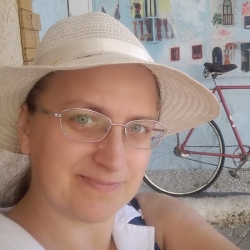



 Our country has some of the largest forest territories in the world. In addition to wild forests and natural ecosystems, urban green zones, forest park zones, and protected natural areas are of great importance. To organize the correct and effective use of forest funds, a sufficiently large number of specialists is needed. The demand for the profession of a specialist in forestry and forestry is high. Such employees are needed in state and municipal services, in the labor collectives of nature reserves and nature reserves. In addition, specialists are also in demand in commercial structures that organize the protection and use of forest funds under an agreement with state environmental structures.
Our country has some of the largest forest territories in the world. In addition to wild forests and natural ecosystems, urban green zones, forest park zones, and protected natural areas are of great importance. To organize the correct and effective use of forest funds, a sufficiently large number of specialists is needed. The demand for the profession of a specialist in forestry and forestry is high. Such employees are needed in state and municipal services, in the labor collectives of nature reserves and nature reserves. In addition, specialists are also in demand in commercial structures that organize the protection and use of forest funds under an agreement with state environmental structures. Krasnobakovskiy Forest College trains specialists of forestry and forest park management of our country. These specialists are employees of the organization responsible for the development and maintenance of forests of the state and public fund, forest park and nature protection zones in cities and protected areas. Its task is to organize activities aimed at preserving the forest fund, its rational use, development and protection. Forestry can be managed and managed by state and commercial organizations. The rules of forest use and arrangement of forest park zones are regulated by state laws, norms and standards. The specialist of forestry and forest park management ensures compliance with the norms, organizes and implements practical work on the conservation of forests and parks.
Krasnobakovskiy Forest College trains specialists of forestry and forest park management of our country. These specialists are employees of the organization responsible for the development and maintenance of forests of the state and public fund, forest park and nature protection zones in cities and protected areas. Its task is to organize activities aimed at preserving the forest fund, its rational use, development and protection. Forestry can be managed and managed by state and commercial organizations. The rules of forest use and arrangement of forest park zones are regulated by state laws, norms and standards. The specialist of forestry and forest park management ensures compliance with the norms, organizes and implements practical work on the conservation of forests and parks.

























